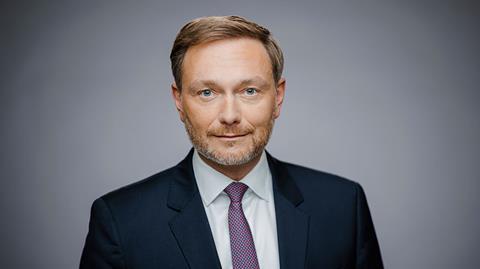The German insurance association, GDV, has called on the government to improve the draft bill to reform the third pillar’s private pension system (Riester-Rente) drafted by the Ministry of Finance (Bundesministerium der Finanzen).
The GDV has criticised the possibility for savers, under a reformed third pillar pension system, to invest in individual shares in retirement savings accounts (Altersvorsorgedepot), considering it a “too high risk”, it said in a statement.
The government plans to introduce retirement savings with a level of guarantees on the contributions paid spanning from 80 %to 100%, a proposal backed by GDV.
However the new subsidies, proportional to the contributions according to the reform, could result in financial disadvantages for families and single parents, the association added.
“Our calculations show that these groups could benefit significantly less from the new subsidies than before. Improvements are necessary in order to enable fair and reliable retirement provision for everyone,” GDV’s deputy chief executive officer Moritz Schumann said.
The finance ministry has proposed to give 20 cents for every euro put in the depot, so-called basic allowance, and a maximum possible personal contribution funded by subsidies of €3,000 (€3,500 from 2030).
GDV has also warned of the risks of a lack of protection in the payout phase after 85 years old. If the reform is approved, savers can choose in the future between a lifelong annuity until death, or a payout plan until you reach the age of 85.
The association is against the fact that lifelong pension benefits are only an option, adding that, according to a study of the universities of Munich and Mannheim, the value of lifelong benefits is underestimated in the public perception.
“This is a clear step backwards. I am convinced that with our new, attractive offers and good arguments, this will change again in the coming years. With lifelong and secure pensions, insurers [in Germany] offer the most reliable solution for retirement provision,” Schumann added.

The association’s criticism has resonated within the government, which needs backing if it wants to succeed in implementing the reform and establishing a thriving market for third-pillar pension products.
Finance minister Christian Lindner replied to feedback received in the last few days saying that the government is on the right track.
“The subsidised personal amount is only capped at €3,000 per year. That is too little [critics say]. Yes, I would like it to be higher but, firstly, it costs money and, secondly, the coalition partners [Social democrats SPD and Greens] believe that people with higher incomes should not be supported,” Lindner said.
He noted that the lifelong annuity was not attractive to many because it provided less than a payout plan; some people also have alternative plans for their old age.
“The providers [of pension plans] will compete with each other and thus strengthen freedom of choice [for savers],” he added.
The latest digital edition of IPE’s magazine is now available





















